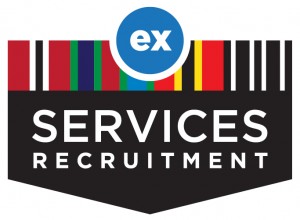The Elephant in the Room
The Elephant in the Room: How to ask/answer the Salary Question!
Recently a post on Twitter went viral when a woman revealed that her second interview with a company was cancelled after she asked them how much salary she should expect if she was successful for the position. However upon asking this question via email, the reply she received was completely unanticipated.
The hiring manager informed her that “Your questions reveal your priorities are not in sync with those of SkipTheDishes” and as a result they would no longer be following through with the scheduled interview later on in the week. In a later email the hiring manger went on to clarify that they were a start-up and they were looking for motivated people who believed in hard work as opposed to compensation and benefits thus she did not fit their company culture.
This conversation reveals a common source of anxiety for job seekers. Not many people know, or feel confident enough to discuss the salary question, potentially fearing a negative impression upon themselves. However it is a perfectly reasonable concern and should be addressed appropriately by both the employee and the employer.
It is best to have clear communication regarding salary in order to avoid disappointment and in many cases simply to avoid wasting time if expectations don’t match. In the wake of the public outcry against this reaction to a simple question, SkipTheDishes have since apologized to the woman and also offered her the second job interview, promising to provide training in order to avoid similar situations in the future.
What it actually comes down to is the type of job that you are applying to, and based upon this, there are certain ways to handle to issue. If it is an entry level position, it is most likely that the salary or the wages are predetermined and non-negotiable. That said however, the wages should be at an industry standard. In most cases, for entry level positions the salary will be told to you by the hiring manager themselves without you having to ask. In this scenario there is minimal room to negotiate and thus research should be done prior to the interview. There is no point expecting high wages without qualifications or work experience especially for entry level positions. It always pays to be informed about current industry pay rates and the job specification before going to interviews.
Some employers may ask outright about salary expectations .This can be a potentially tricky question as you want make sure you neither undersell nor oversell yourself. Again, it mainly comes down to knowing industry rates and the potential you can bring to the role. Being reasonable allows you the room to negotiate salary. Be confident in your ask, but don’t be cocky.
Some employers may also ask you your previous salary. You are under no obligation to reveal it, and in fact revealing your salary may in fact work to your disadvantage. In this case a diplomatic answer is best. If you really like the job, giving a price range of what you expect is often useful and perhaps also mentioning that you are flexible around the figure.
If the situation comes where there is a multiple interview process, and there has been no discussion regarding salary then it is best to send a polite request to the hiring manager and ask them politely about when it would be a good time to discuss salary. This sets off the conversation as it shows you aren’t demanding to know the salary but are motivated enough to potentially negotiate your worth. Although money isn’t everything, but it does make up a significant portion of the bigger picture. Thus it is best to address the elephant in the room as long as it is done in a tactful, diplomatic manner without discomforting the employer or the candidate.



